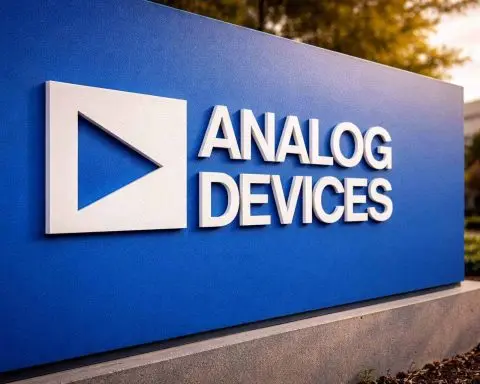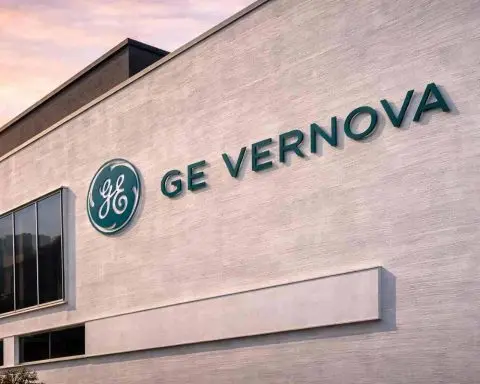- OpenAI’s latest experimental reasoning model achieved a gold medal performance at the International Math Olympiad by solving 5 of 6 problems under contest conditions.
- GPT-5 is reportedly on the horizon as a system of specialized models with a smart router, not a single monolith.
- Demis Hassabis, CEO of DeepMind, predicted AI could reach human‑level problem‑solving within five years, calling the shift bigger than the Industrial Revolution.
- NVIDIA and university labs introduced DiffusionRenderer, a tool that can insert CGI elements into real videos, demonstrated with an AI-generated dragon casting lifelike shadows.
- OpenAI rolled out ChatGPT Agent mode, letting the chatbot browse the web, use plugins, and autonomously place purchases for paying users starting July 17.
- Amazon announced AgentCore at AWS, a platform for deploying AI agents at scale with seven new services and an AI Agents Marketplace, plus $100 million to fund agentic AI startups.
- Meta formed a new Superintelligence Labs division, launched a massive hiring spree including Alexandr Wang as Chief AI Officer, and outlined plans for a 1 gigawatt data center in Ohio (Project Prometheus) online in 2026 and a 5 gigawatt Hyperion facility in Louisiana.
- Google acquired Windsurf’s engineering team in a deal valued around $2.4 billion to bolster its AI coding tools.
- Netflix demonstrated an AI-generated VFX scene in a new series, completing the work 10 times faster and cheaper, with Ted Sarandos saying AI helps creators rather than replaces artists and plans for AI driven personalization and interactive ads later this year.
- PitchBook data show U.S. startup funding rose 75.6% in the first half of 2025 to $162.8 billion, with AI startups accounting for 64% of deal value, as OpenAI closed a $40 billion funding round.
Breakthrough AI Milestones and New Models
Artificial intelligence smashed through multiple benchmarks this week. OpenAI revealed that its latest experimental reasoning model achieved a “gold medal” performance on the notoriously difficult International Math Olympiad, solving 5 out of 6 problems under contest conditions analyticsindiamag.com. “Our latest experimental reasoning LLM has achieved a longstanding grand challenge in AI,” OpenAI researcher Alexander Wei announced, noting that this required “a new level of sustained creative thinking” by the AI analyticsindiamag.com analyticsindiamag.com. While this math-whiz model isn’t yet public, OpenAI hinted that GPT-5 is on the horizon – reportedly a system of specialized models with a smart router, rather than a single monolith analyticsindiamag.com. (In fact, industry chatter suggests GPT-5’s launch is imminent, as OpenAI works to “fix model naming” and seamlessly route user requests to whichever sub-model is best suited analyticsindiamag.com.)
Other research leaps made headlines too. Google DeepMind’s scientists have been bullish on AI’s rapid progress – CEO Demis Hassabis recently predicted AI could reach human-level problem-solving within just five years, calling the transformation “bigger than the Industrial Revolution” fortune.com. And in creative AI, a joint team from NVIDIA and university labs unveiled a “DiffusionRenderer” tool that can insert CGI elements into real videos with uncanny realism – one demo showed an AI-generated dragon seamlessly integrated into live footage, casting lifelike shadows without special sensors ts2.tech ts2.tech. These feats underscore how fast AI capabilities are advancing, from abstract math to visual magic.
Big Tech Unveils Next-Gen AI Products and Features
The past few days saw major companies rolling out autonomous AI agents and other cutting-edge features that blur the line between demo and science fiction. OpenAI rolled out a new ChatGPT “Agent” mode that lets the chatbot take actions on a user’s behalf – it can browse the web, use plugins, and even make purchases or reservations for you ts2.tech reuters.com. Starting July 17, paying ChatGPT users gained access to this agentic AI, which OpenAI touts as a leap beyond passive chatbots. In one example, the ChatGPT agent was able to “order an outfit for a wedding” on its own, factoring in dress code and weather reuters.com. Early users gushed on social media – “I can’t believe it did the whole thing without me!” – but others urged caution about leaving an AI unattended with such autonomy ts2.tech ts2.tech. Notably, this powerful new feature remains unavailable in the EU for now due to uncertainty over upcoming regulations, frustrating European users who feel “over-regulation [is] making us miss out” ts2.tech. OpenAI says human oversight is still essential, even as it showcases glimpses of a future where mundane digital chores – from booking tickets to planning vacations – could be fully offloaded to AI ts2.tech ts2.tech.
Not to be outdone, Amazon used its annual cloud summit to announce “AgentCore,” a toolkit for building AI agents at scale on AWS. In New York, AWS exec Swami Sivasubramanian hailed agentic AI as a “tectonic change… [that] upends how software is built and used,” as he unveiled no fewer than seven new services for deploying AI agents along with an AI Agents Marketplace ts2.tech ts2.tech. Amazon is backing this push with serious money: it pledged an additional $100 million to fund startups and projects in “agentic AI” via its Generative AI Innovation Center ts2.tech aboutamazon.com. The AgentCore platform will provide the plumbing for secure, enterprise-ready AI agents – from a sandboxed code interpreter to an integrated web browser tool – so businesses can automate complex tasks with AI while maintaining control aboutamazon.com aboutamazon.com. “It also introduces a host of new challenges… and changes how we interact with software,” Sivasubramanian cautioned, emphasizing the need for guardrails even as AWS embraces the agent revolution aboutamazon.com.
Other tech giants also doubled down. Meta’s CEO Mark Zuckerberg dramatically ramped up his company’s AI ambitions, forming a new “Superintelligence Labs” division and vowing to invest “hundreds of billions of dollars” in AI R&D and infrastructure reuters.com capacitymedia.com. Over the past week, Meta went on a hiring spree unprecedented in Silicon Valley’s talent wars – poaching top AI researchers from Apple (including the head of Apple’s AI model team) and even snagging Alexandr Wang, the 28-year-old CEO of Scale AI, to become Meta’s new Chief AI Officer reuters.com reuters.com. Zuckerberg has “intensified [the] talent war” with aggressive hiring and big-ticket deals reuters.com, especially after internal tests showed the latest version of Meta’s LLaMA model lagging behind rivals reuters.com. To ensure his team has the horsepower to compete, Zuckerberg confirmed plans to build multiple massive AI supercomputers – including a 1-gigawatt data center in Ohio (code-named Project Prometheus) coming online in 2026, and a 5-gigawatt “Hyperion” facility in Louisiana that would be one of the world’s largest data centers capacitymedia.com capacitymedia.com. “We’re building multiple more titan clusters… just one of these covers a significant part of the footprint of Manhattan,” Zuckerberg wrote, underscoring the epic scale of Meta’s bet on AI. His vision: an army of AI assistants and content generators embedded across Meta’s platforms, all powered by in-house compute on a colossal scale capacitymedia.com capacitymedia.com. (Critics have noted that Meta’s talent grab concentrates AI know-how under Big Tech’s roof – prompting debate about openness vs. consolidation – but Meta counters that it has a track record of open-sourcing key AI tools even while pushing toward AGI.)
Meanwhile, Google made a quieter yet significant talent move: it swooped in to “acquihire” the engineering team of AI startup Windsurf in a deal valued around $2.4 billion, after fending off an attempt by OpenAI to acquire that same startup reuters.com. This surprise move – essentially paying for people rather than products – mirrors a trend in which Big Tech is racing to secure AI expertise without triggering antitrust alarms. (These “acqui-hire” deals, like Microsoft’s $650 million pact with Inflection.AI and Meta’s recent 49% stake in Scale AI, transfer talent without outright acquisitions reuters.com reuters.com.) Google’s new hires from Windsurf are expected to bolster its AI coding assistant efforts and keep the company competitive in AI programming tools. Google is also reportedly joining the phone wars via AI: Reuters reports that Google-backed startup Perplexity AI is in talks with smartphone makers to pre-install its new Comet AI mobile browser, an attempt to bring an AI chatbot-powered browser to the masses reuters.com reuters.com. And in consumer news, Netflix just demonstrated how AI is infiltrating Hollywood – the streaming giant used generative AI to create an entire VFX scene in a new series, completing a complex visual effect 10× faster and cheaper than traditional methods ts2.tech ts2.tech. Co-CEO Ted Sarandos insisted this tech “helps creators make films and series better, not just cheaper… this is real people doing real work with better tools”, pushing back on fears that AI would replace human artists ts2.tech. Netflix says its artists already use AI for pre-visualization and is even experimenting with AI-powered personalized content and interactive AI-driven ads by later this year ts2.tech ts2.tech. From productivity suites to entertainment, AI features are rapidly becoming mainstream – and companies are eager to show they can harness these tools responsibly.
Surging Investments and Power Plays in the AI Industry
The business of AI is booming like never before. A new PitchBook report shows U.S. startup funding jumped 75.6% in the first half of 2025, reaching $162.8 billion – the highest since the 2021 VC peak – largely “thanks to the continued AI boom” reuters.com. In fact, investments in AI startups made up 64% of all venture deal value this year reuters.com reuters.com. The frenzy is fueled by a few eye-popping mega-deals: OpenAI closed a $40 billion funding round to bankroll its compute needs, and Meta took a $14.3 billion stake for 49% of data-labeling firm Scale AI reuters.com. Other AI unicorns saw billion-plus raises too (Anthropic, Adept, and more), as investors double down on the sector. “It’s downstream of OpenAI and Anthropic growing at unbelievable rates,” one VC said of the gold rush, noting that everyone is hunting the next breakthrough in areas from robotics to drug discovery reuters.com. Ironically, even as money floods into startups, venture capital firms themselves are struggling to raise new funds (VC fundraising is down ~34% year-on-year) reuters.com – a split between LPs’ cautious mood and their fear of missing the AI wave.
Big Tech is also flexing its wallet to stay ahead. Aside from Google’s Windsurf hire and Meta’s talent buys, Microsoft and Amazon have each quietly scooped up AI startups via similar talent-centric deals reuters.com reuters.com. And on the infrastructure side, the silicon arms race continues: industry leader NVIDIA saw such overwhelming demand for its AI chips that it briefly became a $1 trillion company. This week, Nvidia’s CEO Jensen Huang traveled to China and announced plans to ramp up supply of its H20 AI chips for Chinese customers after U.S. export rules were partially eased reuters.com reuters.com. Huang praised China’s “world-class” AI models and said Nvidia will sell whatever advanced chips it’s allowed to: “H20 was released from its ban… whatever we are allowed to sell to China we will do so”, he told a Beijing audience reuters.com reuters.com. This comes after the U.S. Commerce Department quietly granted licenses for Nvidia to resume some high-end chip sales to China – a move seen as an olive branch to industry, given that Chinese buyers account for 20-25% of Nvidia’s data center revenue. However, the relaxation sparked immediate political backlash in Washington. Congressman John Moolenaar, who chairs a China-focused committee, blasted any loosening of the chip ban: “The U.S. must draw a hard line: hostile AI systems have no business operating inside our government… We can’t let the Chinese Communist Party use American chips to train AI models that will power its military” reuters.com ts2.tech. Nvidia’s stock wobbled on fears that export rules could tighten again ts2.tech. The episode highlights how AI investments and geopolitics are deeply intertwined – with U.S. firms walking a tightrope between profit and national security. (Notably, even as U.S. regulators debate bans, China is pouring billions into homegrown AI chips to reduce its reliance on Nvidia ts2.tech.)
In the startup realm, one particularly meteoric rise worth noting is that of Perplexity AI, the maker of an AI search chatbot. The company just raised another $100 million at a staggering $18 billion valuation, up from $1 billion only a year ago ts2.tech. This values the relatively young startup on par with some Fortune-500 companies, illustrating the “unbelievable” investor appetite for generative AI plays ts2.tech reuters.com. And new funds keep emerging: a former Instacart backer launched Verified Capital, a $175 million fund dedicated solely to AI startups ts2.tech. Even Wall Street is reorienting around AI – JPMorgan just created a whole research unit to cover private AI firms reuters.com reuters.com. Despite some recent tech layoffs, companies like Amazon insist these cuts are about efficiency gains from AI, not business weakness. In fact, Amazon’s cloud division confirmed it cut a few hundred AWS jobs in support roles, citing “AI efficiencies” that automate certain tasks – “the first visible proof within AWS of AI-driven automation,” as Reuters noted ts2.tech. One analyst quipped, “AI eats the tasks it masters, then companies reassign or release the humans,” capturing the mix of productivity and displacement that AI is bringing to various industries ts2.tech. The bottom line: money and talent are flooding into AI on a historic scale, reconfiguring corporate strategies and workforce needs in real time.
Governments Act: AI Regulation and Geopolitical Moves
Governments around the world are racing to respond to the AI revolution – some with hefty investments, others with new rules. In the United States, President Donald Trump convened a high-profile “Energy and AI Innovation” summit in Pittsburgh this week, bringing together tech CEOs, energy executives, and defense officials to boost America’s AI prowess reuters.com reuters.com. At the summit (hosted by Senator Dave McCormick), Trump trumpeted roughly $90 billion in new investments, including big-ticket projects in Pennsylvania such as Google’s $3 billion hydropower deal to run future data centers and Blackstone’s $25 billion plan for AI-oriented infrastructure reuters.com reuters.com. “This is a really triumphant day… we’re doing things that nobody ever thought possible,” Trump declared, celebrating the influx of AI and clean energy projects into the industrial heartland reuters.com reuters.com. The White House is also preparing a series of executive orders to supercharge AI development – for example, by easing permits for power grid hookups and offering federal land for data centers, aiming to alleviate the electricity bottleneck that threatens to slow AI growth reuters.com reuters.com. (As context, the AI boom has data centers consuming massive power; Big Tech is literally scrambling to secure gigawatts of electricity reuters.com.) Trump’s administration already directed an AI Action Plan to “make America the world capital of AI” and has been rolling back regulations seen as hindrances reuters.com reuters.com. In fact, back in January, Trump revoked a 2023 Biden-era executive order on AI safety, which had mandated companies to disclose data about AI model risks ts2.tech reuters.com. The new stance is clear: prioritize innovation and “remove barriers” for U.S. AI developers, even as some critics worry about a lighter touch on oversight ts2.tech.
The U.S. government is also pouring money into AI for national security. In mid-July, the Pentagon awarded four landmark contracts – up to $200 million each – to OpenAI, Google, Anthropic, and Musk’s xAI, tasking them with prototyping “frontier AI” systems for defense reuters.com reuters.com. The Department of Defense said these agentic AI solutions will help with everything from data analysis to decision support in military contexts reuters.com reuters.com. “The adoption of AI is transforming the DoD’s ability to support our warfighters and maintain strategic advantage,” said the DoD’s Chief Digital and AI Officer, underscoring how crucial these technologies are deemed for national security reuters.com. The Pentagon had already quietly inked a $200 million deal with OpenAI last month to adapt ChatGPT-style tech for warfighting scenarios ts2.tech reuters.com. And Musk’s xAI just launched a special “Grok for Government” package, offering its latest Grok 4 chatbot (which Musk dubs “the smartest AI in the world”) to federal and defense agencies ts2.tech reuters.com. These moves deepen the symbiosis between leading AI firms and Washington. However, officials like Senator Elizabeth Warren have cautioned the DoD against becoming too reliant on a few private companies – urging competitive bids and diversity in suppliers so that “a few billionaire-owned firms” don’t dominate U.S. defense AI ts2.tech reuters.com. The Pentagon insists it shares those concerns, even as it taps Big Tech to bolster America’s AI arsenal.
Across the Atlantic, Europe is charging ahead with a more heavy-handed regulatory approach. The EU AI Act, a sweeping law classifying and governing AI by risk levels, formally took effect last year – and its first provisions kick in August 1. In preparation, Brussels issued fresh guidelines on July 18 to help companies comply reuters.com reuters.com. The European Commission identified certain “AI models with systemic risks” (think: very advanced models that could impact health, rights or democracy) and laid out how makers of such models must evaluate and mitigate risks under the new rules reuters.com reuters.com. These high-risk AI systems – which include large foundation models from the likes of OpenAI, Google, Meta, Anthropic, and even Europe’s own Mistral – will have to implement rigorous measures: conducting adversarial testing, reporting serious incidents, proving cybersecurity against misuse, and documenting their training data sources to meet transparency and copyright standards reuters.com reuters.com. Companies face steep fines (up to 7% of global revenue) for non-compliance reuters.com. “With today’s guidelines, the Commission supports the smooth and effective application of the AI Act,” said EU tech chief Henna Virkkunen, trying to assuage businesses’ worries about the regulatory burden reuters.com. At the same time, the EU stood up a voluntary “AI Code of Practice” – a sort of pilot compliance program – and invited big AI firms to sign on. Microsoft indicated it will likely sign the code to “provide legal certainty” ahead of the Act reuters.com reuters.com. Meta Platforms, however, rebuffed this voluntary code, reportedly preferring to wait for the final law rather than commit to EU guidelines it had a hand in criticizing reuters.com reuters.com. This split reflects a broader tension: U.S. companies often voice concerns that Europe’s strict rules could stifle innovation or put them at a disadvantage, even as European leaders argue that guardrails are necessary to “prevent AI’s harms before they happen.” How this transatlantic regulatory gamble plays out – innovation vs. precaution – is being closely watched around the world.
In other policy news: U.S. lawmakers have zeroed in on the national security implications of foreign AI. A bipartisan bill introduced in Congress would ban federal agencies from using AI models made in China, such as those from the up-and-coming Chinese firm DeepSeek reuters.com reuters.com. DeepSeek grabbed attention by claiming an LLM as good as ChatGPT at a fraction of the cost, raising alarms in D.C. about espionage – a U.S. official concluded DeepSeek was likely “aiding China’s military and intelligence operations” and even accessing advanced U.S. chips reuters.com. The proposed “No Adversarial AI Act” would create a permanent blacklist of AI from China (and other hostile nations) across all government use reuters.com reuters.com. “Hostile AI systems have no business operating inside our government,” said Rep. John Moolenaar, one sponsor, underscoring the distrust of Chinese AI tools reuters.com. The bill would empower the government to bar, and if needed purge, any AI software from adversary states – unless an exemption is granted for research reuters.com. This comes as the Trump administration already banned some agencies from using DeepSeek’s products, and even floated banning them on all government devices reuters.com. Clearly, AI has become a new front in U.S.–China tech tensions, with each side seeking to protect its edge. (Illustratively, China’s Commerce Minister this week rolled out the red carpet for Nvidia’s Jensen Huang, saying China “welcomes foreign AI companies” ts2.tech – a warm gesture even as China itself works to eliminate reliance on those very firms.)
Experts and Ethics: Voices on AI’s Rapid Rise
Amid these whirlwind developments, leading AI experts and public figures have been weighing in – some evangelizing AI’s promise, others warning of its peril. Sam Altman, OpenAI’s CEO, has had a foot in both camps. This week, OpenAI launched a $50 million “AI for good” fund to empower nonprofits and community projects with AI reuters.com. The fund was a direct response to recommendations from OpenAI’s own nonprofit advisory board, reflecting Altman’s oft-stated mission of ensuring AI benefits all of humanity reuters.com reuters.com. (It also comes as OpenAI is restructuring itself into a public-benefit corporation to better align its for-profit arm with its altruistic roots reuters.com.) “We’re excited to support organizations using AI to tackle education, healthcare, and public interest challenges,” the company said, framing the fund as proof that even as it chases massive capital and valuation, it hasn’t forgotten its founding charter reuters.com reuters.com. Altman himself, fresh off a world tour meeting regulators, continues to call for balanced oversight – he has acknowledged existential AI risks in the long term while cautioning against draconian rules that smother innovation. It’s a delicate balancing act mirrored by others in the field.
On the more optimistic side, Yann LeCun, Meta’s chief AI scientist (and Turing Award winner), remains a vocal skeptic of AI doomsaying. He often argues that current AI isn’t anywhere near possessing human-level autonomy or survival instinct, and he frequently points out that “AI is not going to kill us all” – instead, he predicts a future where “everyone will be smarter… [and] AI will create far more value than it destroys” forbes.com. LeCun has been bullish on AI’s potential to solve big problems and has downplayed timelines for AGI, suggesting it’s still far off and will likely emerge via many specialized “smart modules” rather than a single conscious machine. In a recent interview, he chuckled at the idea of an imminent robot uprising, quipping that AGI is “not just around the corner – and when it does arrive, it won’t be an alien overlord, but a tool we’ve designed”. This confident stance resonates with many builders in Silicon Valley who feel that AI panic is overblown.
By contrast, Yoshua Bengio and Geoffrey Hinton, two other “godfathers of AI,” have struck a more cautionary tone. Bengio has advocated for “slow AI science” and even floated the idea of a temporary global moratorium on training the most powerful models until safety frameworks catch up. Hinton, who dramatically quit Google earlier citing AI safety concerns, recently likened the threat of unchecked AI to nuclear weapons, urging global coordination on AI governance. This week, Hinton joined dozens of AI luminaries in calling for research into AI alignment to be prioritized, emphasizing that as models grow more complex, ensuring they “follow human intent and values” is paramount. (Notably, the White House’s coming executive orders are expected to include new AI safety standards and possibly requirements for AI systems to undergo red-team testing for dangerous capabilities, which aligns with these experts’ recommendations.)
Within companies, ethical debates are surfacing too. At xAI, Elon Musk’s new venture, some employees reportedly pushed back on the integration of AI into surveillance and military domains, raising internal alarms about “building dystopian tech.” And at Google DeepMind, researchers have privately expressed concerns about the compute-heavy race for ever larger models, questioning if scaling laws are being pursued without sufficient regard to societal impact or even diminishing returns. Demis Hassabis addressed these concerns in a recent all-hands, acknowledging the need for “more energy-efficient AI” and hinting that DeepMind is exploring neuroscience-inspired AI as a path to smarter, not just bigger, models. Hassabis also sought to reassure staff (and regulators) that DeepMind’s work on AI governance is in full swing – the company is advising the U.K. government ahead of its upcoming Global AI Safety Summit, aiming to shape reasonable guardrails that don’t stifle innovation.
Finally, the cultural impact of AI’s rapid rise is generating both awe and anxiety among the public. On social media, people marvel at new AI-powered creative tools – like image generators that conjure photo-realistic art from text, or personal assistants scheduling our days – yet they also joke darkly about AI taking their jobs. This week, a viral discussion sparked by Meta’s hiring spree had engineers on LinkedIn jokingly listing their job title as “Poached by Zuckerberg’s Superintelligence Labs” ts2.tech. One quipped that Meta’s biggest product launch of the week was “a press release listing all the people they hired.” ts2.tech But under the humor lay real unease: “Is anyone left at OpenAI or Google, or did Zuck hire them all?” a VC half-joked on X ts2.tech. Open-source AI devotees lamented that some champions of transparency have gone behind closed doors at big firms – “There goes transparency,” one Redditor sighed, worrying that cutting-edge research will now become proprietary ts2.tech. Others offered a more hopeful take: with the influx of resources, these researchers might achieve breakthroughs faster, and companies like Meta have still open-sourced models (e.g. LLaMA 2) even as they commercialize. This debate – openness vs. concentration, speed vs. caution – illustrates the ambivalence in the AI community. As one observer put it: We’re thrilled by what these “AI rockstars” might build with unlimited compute and funds, yet nervous that AI progress (and power) is concentrating in the hands of a few giants.
Ted Sarandos, Netflix Co-CEO, on using AI in film production: “AI represents an incredible opportunity to help creators make films and series better, not just cheaper… this is real people doing real work with better tools.” ts2.tech
Swami Sivasubramanian, AWS VP of Data & AI, on autonomous agents: “It’s a tectonic change… It upends the way software is built… and potentially most impactfully, it changes how software interacts with the world – and how we interact with software.” aboutamazon.com
President Donald Trump, on America’s AI investment push: “This is a really triumphant day… We’re doing things that nobody ever thought possible.” reuters.com
Rep. John Moolenaar, on barring Chinese AI models: “The U.S. must draw a hard line: hostile AI systems have no business operating inside our government… We can’t let the Chinese Communist Party use American chips to train AI models that will power its military.” reuters.com
Sources: OpenAI/Reuters reuters.com reuters.com; Analytics India Magazine analyticsindiamag.com analyticsindiamag.com; Reuters – Foo Yun Chee reuters.com reuters.com; Reuters – Zaheer Kachwala reuters.com; Reuters – Anna Tong reuters.com reuters.com; Reuters – Deborah Sophia reuters.com reuters.com; Reuters – Jarrett Renshaw reuters.com reuters.com; Reuters – Krystal Hu reuters.com reuters.com; Reuters – Marisa Dellatto (TechCrunch) ts2.tech; AboutAmazon (AWS) aboutamazon.com aboutamazon.com; Capacity Media capacitymedia.com capacitymedia.com; Reuters – Stephen Nellis reuters.com reuters.com; ts2.tech Weekend AI Report ts2.tech ts2.tech ts2.tech ts2.tech.









